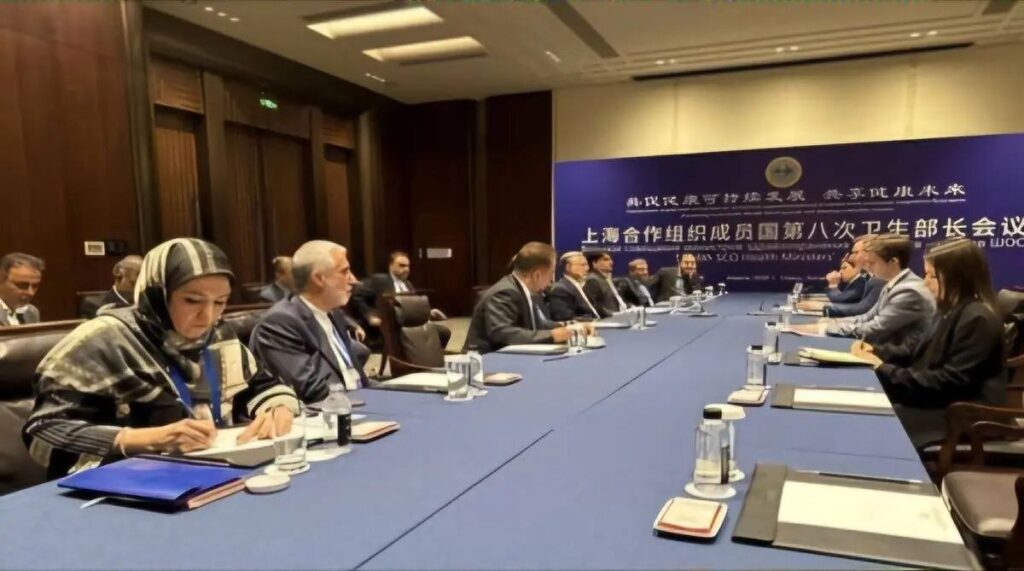TEHRAN – Health Minister Mohammad Reza Zafarkandi and Russian Deputy Health Minister Oleg Saragai discussed ways to strengthen relations in the health sector.
Authorities met on Sunday on the sidelines of the eighth meeting of the Ministry of Health, the Shanghai Cooperation Agency (SCO) in Xi’an, China, the Ministry of Health reported.
During the meeting, Saragay was ready for Russia to expand cooperation with Iran, and emphasized the need for the development of interaction between the universities of the two countries, including exchanging students.
Officials expressed optimism that signing the memorandum would set a ground for implementation of the agreement reached.
Zafarqandi emphasized promoting joint activities focused on contagious and non-communicable diseases, manufacturing pharmaceuticals and medical tools, modern and digital health technologies, and joint activities focused on holding joint scientific conferences, as well as achieving high-quality education based on international standards.
Expanding health relations in line with a “strategic partnership”
Following the signing of the Convention on Comprehensive Strategic Partnership between Iran’s Islamic Republic and the Russian Federation, the two countries will support cooperation in the health sector.
Iranian President Masuud Pezeshkian and Russian President Vladimir Putin signed the agreement at an official ceremony held in Moscow on January 17th.
According to the agreement, Deputy International Health Minister Mohammad Hossein Niknam and Hadi Goudalj, counselor at the Iranian Embassy in the Russian Federation, underscored the importance of promoting cooperation in the fields of science, research, technology and education.
Establishing a permanent joint committee, launching a university network, holding a meeting of the presidents of top medical universities, and developing a platform for Russian students to study in Iran is one of the key topics that is suggested to be followed up.
Under the strategic partnership, the two countries will promote collaboration on organizing the state-run health system and managing activities in the health sector, preventing and treating contagious and non-communication diseases, protecting mothers and children’s health, establishing national regulations on the distribution of medicines and medical devices, promoting healthy lifestyles, implementing medical research and implementing medical research on the implementation of medical technology. It has been reported.
Both sides also strengthen long-term and constructive relationships in higher education, science, technology and innovation. It implements joint science and technology projects and develops interactions between educational and scientific institutions of interest.
Exchange of professors and students and organizing scientific and technical knowledge, scientific literature, periodicals, bibliography, and joint meetings, meetings and exhibitions was part of other agreements.
mt/mg

